Discover The Edtech Podcast
The Edtech Podcast

The Edtech Podcast
Author: The Edtech Podcast
Subscribed: 2,170Played: 18,808Subscribe
Share
Description
The mission of The Edtech Podcast is to improve the dialogue between 'ed' and 'tech' through storytelling, for better innovation and impact.
The Edtech Podcast audience consists of education leaders from around the world, plus startups, learning and development specialists, bluechips, investors, Government and media. The Edtech Podcast is downloaded 2000+ each week from 145 countries in total, with UK, US & Australia the top 3 downloading countries. Podcast series have included Future Tech for Education, Education 4.0, and The Voctech Podcast, Learning Continued, Evidence-Based EdTech, and AI in Ed: Our Data-Driven Future series on AI.
Send your qs and comments to @PodcastEdtech, theedtechpodcast@gmail.com, or https://theedtechpodcast.com/ or leave a voicemail for the show at https://www.speakpipe.com/theedtechpodcast
The Edtech Podcast audience consists of education leaders from around the world, plus startups, learning and development specialists, bluechips, investors, Government and media. The Edtech Podcast is downloaded 2000+ each week from 145 countries in total, with UK, US & Australia the top 3 downloading countries. Podcast series have included Future Tech for Education, Education 4.0, and The Voctech Podcast, Learning Continued, Evidence-Based EdTech, and AI in Ed: Our Data-Driven Future series on AI.
Send your qs and comments to @PodcastEdtech, theedtechpodcast@gmail.com, or https://theedtechpodcast.com/ or leave a voicemail for the show at https://www.speakpipe.com/theedtechpodcast
305 Episodes
Reverse
In our second episode on AI in UK schools, Professor Rose Luckin explores AI integration further with three very special guests helping to lead the way with AI in their institutions. Talking points and questions may include: What is the extent of AI penetration in your schools, including teacher usage, classes avoiding it, student use, and any strategies or evaluation plans in place regarding reactive or proactive AI adoption? No AI is risk-free, so concerns around impacts on learning, creativity, authorship, assessment, and whether students genuinely understand AI-generated content are critical issues Safeguarding measures must address the risks of AI providing misleading, biased, or explicit content without consent as these technologies proliferate in classrooms Comprehensive AI training is needed for educators at all levels to ensure smooth technology transitions while maintaining human-centric learning approaches as new tools and understanding are required Guests: Adam Webster, Deputy Head (Innovation), Caterham School & CEO of Sphinx AI Scott Hayden, Head of Teaching, Learning, and Digital, Basingstoke College of Technology Chris Goodall, Head of Digital Education, Bourne Education Trust
What's in this episode? Hello everyone! In this week's episode, we travel nearly 5000 miles from the UK to China, to talk about increasing interest in competency based education. Plus, a listener news item on a new partnership on UK Maths Edtech. First up, you'll hear Edtech Podcast listener Sonnie Tan interviewing the Founder of KitCat, Michael Huang. In this interview with Sonnie, Michael talks about how he think the Gaokao exam will slowly develop to recognise student's more creative needs, as well as knowledge of cutting edge technologies, and how to apply them, such as AI. Our second interview is with Yiwei Zhang, Director of International EdTech Projects at Rayee. Rayee is a knowledge provider on education within China, with a focus on well-rounded education rather than the exam-orientated K-12 after school tutoring market that you may have heard a lot about. In this recording you'll hear from Yiwei about how shopping malls are providing space for students to broaden their learning, whilst their parents enjoy some recreation. What do you think about this set up? Stay in touch and have a great week! People Sophie Bailey is the Founder and Presenter of The Edtech Podcast | Twitter: @podcastedtech Michael Huang 黄锐诚, Founder, Kacademy and Kitcat Yiwei Zhang, Director of International EdTech Projects at Rayee. Show Notes and References Check out https://theedtechpodcast.com/edtechpodcast for the full show notes. Tell us your story We'd love to hear your thoughts. Record a quick free voicemail via speakpipe for inclusion in the next episode. Or you can post your thoughts or follow-on links via twitter @podcastedtech or via The Edtech Podcast Facebook page or Instagram.
In today's rapidly evolving educational landscape, Artificial Intelligence is emerging as a transformative force, offering both opportunities and challenges. As AI technologies continue to advance, it's crucial to examine their impact on student expectations, learning experiences, and institutional strategies. One pressing question is: what do students truly want from AI in education? Are they reflecting on the value of their assessments and assignments when AI tools can potentially complete them? This begs the deeper question of what we mean by student success in higher education and the purpose of knowledge in an AI-driven economy. Professor Rose Luckin is joined by three wonderful guests in the studio to discuss what tools we need to support students and how we explore the potential and the limitations of AI for education. Guests: Michael Larsen, CEO & Managing Director, Studiosity Sally Wheeler, Professor, Vice-Chancellor, Birkbeck, University of London Ant Bagshaw, Executive Director, Australian Technology Network of Universities Talking points and questions include: Student expectations and perspectives on using AI for assessments/assignments and the role of knowledge in an AI economy The potential of AI to enhance learning through features like instant feedback, error correction, personalized support, learning analytics How AI could facilitate peer support systems and student community, and the research on the value of this The lack of robust digital/AI strategies at many institutions as a barrier to effective AI adoption The evidence-base for AI in education - challenges with research being highly specific/contextual, debating the value of in-house research vs general studies Whether evidence on efficacy truly drives institutions' buying decisions for AI tools or if other factors/institutional challenges are stronger influences How challenges facing the education sector can inhibit capacity for innovative deployments like AI The growing need for proven, supportive AI tools for students despite institutional constraints
Imagine a child sitting in the corner of the classroom, written off as 'average' or even disruptive, yet harbouring a remarkable, untouched spark of curiosity within. Morgan Whitfield, educator and author of Gifted, invites us to delve into this poignant reality, where the label of 'gifted' often serves as an exclusionary wall that stifles potential, rather than a bridge to achievement . Through heart-stirring real-life stories, this episode challenges us to stop viewing education as an exclusive competition for a select few and start embracing every child with high, compassionate expectations, ensuring no other 'Luca' is ever left behind . Far more than just theory, this conversation becomes deeply personal as Morgan reveals how her own son's journey transformed her perspective on the uniqueness of how we learn . You will be invited to leave behind old methods that merely categorise pupils, moving towards empowering strategies of adaptive teaching . Prepare to shift your mindset forever: education is no longer about climbing a narrow, exhausting mountain peak, but an opportunity to invite children to explore a vast, boundless ocean where each of them has the right to discover their own depths .
If you've ever felt that education is changing faster than the systems meant to support you, this podcast gives you a clearer and more human way to understand that shift. You'll explore how inclusion, data literacy, AI and school culture can be viewed through a lens that actually reflects real lived experiences. In this episode you join Dr Nicole Ponsford, a former teacher turned researcher and founder of a platform built on more than twenty six thousand voices from schools around the world. Her work challenges long standing assumptions about data, belonging and leadership in ways that might change how you see your own role in education. Each conversation is designed to give you insights you can apply directly, whether you're an educator, school leader, policymaker or edtech professional looking to create real impact. With expert interviews and grounded perspectives, the podcast helps you cut through buzzwords and understand what truly drives meaningful change in schools. Follow the show to stay close to ideas and discussions that can shape the way you lead, teach and contribute to the future of learning. Before you dive in, make sure not to miss the key developments connected to this conversation. These show how the ideas discussed in this episode are already creating real momentum beyond the conversation itself. BETT 2026 Finalist Announcement We're thrilled to share that the Global Equality Collective (GEC) has been named a finalist for the BETT 2026 Transformational Impact Award! Sky News Feature GEC recently appeared on Sky News discussing the launch of the second edition of the Inclusion Index. Watch the short clip here: YouTube Short Read more: Sky News Article Exclusive Offer for School Leaders School and trust leaders can access an exclusive 10% launch discount on the GEC Platform. Simply email hello@thegec.education and use the code EDTECHPODCAST10 before the end of November. Follow the podcast and turn on notifications so you never miss conversations that can spark new ideas and inspire your next steps in education.
What if the universities of the future had no walls, no lecture halls, and no stressful exams? In this episode, Philippa Wraithmell speaks with James Newby(President & CEO, NMITE – New Model Institute for Technology and Engineering, UK) and Dr Thomas Funke (Founding President, Tomorrow University, Germany). They explore how higher education is evolving, moving away from rigid traditional systems towards models of learning that are more human, challenge-based, and aligned with the future of work. From hands-on learning and mission-driven education to the development of emotional intelligence and lifelong learning, this conversation reveals how new universities are preparing graduates who are not just intelligent, but adaptive, creative, and empathetic. Tune in if you're curious about: Innovation in higher education and the future of universities The future skills needed in the workplace Mission-based learning and global learning communities How technology is transforming the way we teach and learn Find inspiration to rethink, relearn, and reimagine what "university" means in the digital age.
This episode explores the science of long-term memory and "time-sequenced learning", a neuroscience-based instructional approach that helps students retain knowledge deeply and efficiently. Simon explains how the technique was inspired by research showing that firing synapses in a particular sequence chemically strengthens memory — "tattooing" information into the brain. This method, initially tested in schools and later scaled digitally, can compress weeks of traditional instruction into an hour while improving retention and confidence. He and Philippa discuss: The neuroscience behind learning sequences. Evidence from studies showing comparable or better results than months of traditional lessons. Applications for corporate training, police and medical education, and GCSE Physics. Broader questions about rethinking schools, exams, and what true learning means — shifting focus from rote memorisation to curiosity, creativity, and mastery.
In this episode, host Philippa Wraithmell is joined by Hugh Viney, Founder and CEO of Minerva Virtual Academy, to explore how one online school is redefining what learning can look like. What started during lockdown as a response to students thriving outside traditional classrooms has become one of the UK's fastest-growing accredited online schools. Hugh shares the journey from concept to community, a story shaped by mentorship, wellbeing, and flexibility. Together, Philippa and Hugh discuss how Minerva supports students who struggled in mainstream education, why connection and belonging are central to its success, and how the model is now expanding to reach families across the Middle East. They also unpack what it means to balance innovation with academic rigour, the realities of teaching and learning online, and how culture and kindness have helped Minerva buck the national trend on teacher retention. This is an honest and inspiring conversation about choice, creativity, and the future of education, one that proves being "virtual" can still feel completely real.
This episode of The EdTech Podcast features Abdul Chohan, VP of Learning at Showbie, former chemistry teacher, and international education advisor, in conversation with Philippa Wraithmell. Abdul reflects on his experiences working with schools across India since 2012, tracing the country's journey from traditional, exam-centered classrooms to innovative, learner-centered environments. He discusses the nation's growing focus on skills development, employability, and teacher empowerment, alongside striking examples of resourceful EdTech use in both urban and rural contexts. From schools combining CBSE, IGCSE, and IB curricula under one roof to rural students enabling digital literacy within their families, Abdul highlights a culture of resilience, creativity, and fearless experimentation that positions India as a global hub for educational innovation. The conversation invites educators worldwide to rethink barriers and embrace a mindset of possibility — proving that transformation begins with courage, not connectivity.
This episode features Sidney Sutton, Digital Learning Lead at Oberoi International School, Mumbai, in conversation with Philippa Wraithmell. Together, they discuss the transformation of education and EdTech across India over the past decade. Sidney reflects on the country's deep cultural respect for education, the growth of collaborative teaching communities, and the infrastructure foundations required to make technology integration sustainable. He outlines India's emerging role in AI and homegrown EdTech innovation, as well as how schools are approaching ethical AI, digital citizenship, and responsible adoption of new technologies. The conversation highlights a central theme: how educators can balance innovation with intention, keeping learning, relationships, and human connection at the core of technology-driven education.
This episode features Hema Mandanna, history teacher and administrator at Mallya Aditi International School, Bangalore, in conversation with host Philippa Wraithmell. Hema reflects on her 27-year teaching journey and the evolution of education technology in India's tech capital. The discussion covers key themes of teacher autonomy, professional development, and the integration of iPads and accessibility tools that transformed learning for students with diverse needs. Hema recounts how early adoption of EdTech positioned her school to handle challenges such as remote learning and inclusivity, ensuring technology serves pedagogy rather than the other way around. The episode also examines the school's proactive engagement with AI in education, ongoing teacher training, and how a culture of openness and collaboration fosters confident, critical thinkers. Hema's story stands as a testament to how innovation and equity can coexist when educators lead with trust, creativity, and compassion.
In this special episode, Philippa Wraithmell is joined by the Digital Futures Group — Gemma Williams, Daren White, Emma Darcy, Gary Henderson, James Garnett, Jonny Wathen (and a shoutout to Abid Patel!) — a collective of leading UK and European educators and edtech voices redefining what meaningful digital transformation looks like. Together, they ask the big questions: Are we truly innovating, or just dressing up old systems in new tech? Do frameworks from the DfE, EU, and OECD genuinely help schools, or add to the noise? Is EdTech narrowing or widening the equity gap? And what must we unlearn if we're serious about futureproofing education? Expect bold honesty, shared insight, and a challenge to every assumption about what progress in education really means.
Welcome back to a new season of The EdTech Podcast! Our founder, Sophie Bailey, is thrilled to be back, sharing what she's been up to over the past few years and introducing our brand-new host, Philippa Wraithmell.
We've all seen the headlines - AI is revolutionising everything from how students learn to how teachers teach. The promise of personalised learning paths, automated grading, and AI teaching assistants has created a gold rush mentality in education technology. But in our rush to adopt these powerful new tools, are we moving too fast? Today we'll explore why when it comes to AI in education, we need to learn fast but act more slowly and thoughtfully. We'll look at both the tremendous opportunities and serious risks that AI tools present for students and educators. We'll examine where AI can truly add value in education versus where human teachers remain irreplaceable. And most importantly, we'll discuss why comprehensive AI literacy and training is absolutely crucial - not just for educators, but for everyone involved in shaping young minds. Drawing on insights from leading experts on the frontlines of AI in education, we'll provide a framework for thinking about how to implement AI tools responsibly and effectively. Whether you're a teacher, administrator, policymaker or parent, this episode will give you practical guidance for navigating the AI revolution in education. Talking points and questions may include: Opportunities and risks of the tools: Adaptive or personalised learning paths, automated marking and feedback, content generation, analytics and teaching assistants, but also inaccuracy and lack of transparency, data risks, biases, ethics and safeguarding, and like social media, the unintended lasting consequences Where AI is best placed: Is it EdTech and tools in the classroom, the augmentation and elevation of human intelligence, or is it just learning about AI and what it can do and why (is knowledge=power enough?) Why it is so important that understanding and training are emphasised and why everyone needs to have such training Without it there can be safeguarding disasters, skills training can be insufficient, many AI tool providers are offering free training to learn to use their tool but this is consumerised and inadequate and can be ethically questionable; do we want successive generations to only be producing AI tools that are exploitative and using our data and our IP without our consent, or do we want to help people with technology and for the partnership to be of most benefit to them? Guests: Rt. Hon the Lord Knight of Weymouth, Jim Knight Rob Robson, ASCL Trust Leadership Consultant
In our third episode on AI in UK schools, Professor Rose Luckin explores AI integration further with two very special guests helping to lead the way with AI in their institutions. Talking points and questions may include: What is the extent of AI penetration in your schools, including teacher usage, classes avoiding it, student use, and any strategies or evaluation plans in place regarding reactive or proactive AI adoption? No AI is risk-free, so concerns around impacts on learning, creativity, authorship, assessment, and whether students genuinely understand AI-generated content are critical issues Safeguarding measures must address the risks of AI providing misleading, biased, or explicit content without consent as these technologies proliferate in classrooms Comprehensive AI training is needed for educators at all levels to ensure smooth technology transitions while maintaining human-centric learning approaches as new tools and understanding are required Guests: Harvey Trump, Educational Consultant, Global Educational Consultancy, Egypt Avani Higgins, Director of School Improvement, Leathersellers' Federation of Schools
AI integration in UK schools varies, with some embracing it for tasks like grading and personalised learning, while others avoid it in certain subjects. However, there is no risk-free AI. As these technologies spread in education, proactive strategies are crucial, not reactive ones. Key concerns include AI providing misleading or biased information, generating explicit content without consent, and impacts on true learning if over-relied upon for content generation. Robust safeguarding measures addressing these risks are essential as AI permeates classrooms. Effectively preparing teachers is paramount for successful AI adoption. Comprehensive training is needed not just for educators, but leaders too, ensuring all grasp the opportunities and challenges. Only then can AI enhance learning while keeping a human-centric approach. Talking points and questions may include: What is the extent of AI penetration in your schools, including teacher usage, classes avoiding it, student use, and any strategies or evaluation plans in place regarding reactive or proactive AI adoption? No AI is risk-free, so concerns around impacts on learning, creativity, authorship, assessment, and whether students genuinely understand AI-generated content are critical issues Safeguarding measures must address the risks of AI providing misleading, biased, or explicit content without consent as these technologies proliferate in classrooms Comprehensive AI training is needed for educators at all levels to ensure smooth technology transitions while maintaining human-centric learning approaches as new tools and understanding are required Guests: Emma Darcy, Director of Technology for Learning, Denbigh High School Sarah Buist, Head of Digital Strategy, Royal Grammar School Newcastle Rose Luckin, Professor of Learner Centred Design, UCL, Founder & CEO, Educate Ventures Research
In the second episode of a two-part miniseries on risk management, risk mitigation and risk assessment in AI learning tools, Professor Rose Luckin is away in Australia, speaking internationally, so Rowland Wells takes the reins to chat with Dr Rajeshwari Iyer of sAInaptic to hear her perspective on risk as a developer and CEO. View our Risk Assesments here: https://www.educateventures.com/risk-assessments In the studio: Rowland Wells, Creative Producer, EVR Rajeshwari Iyer, CEO and Cofounder, sAInaptic Talking points and questions include: Who are these for? what's the profile of the person we want to engage with these risk assessments? They're concise, easy-to-read, no technical jargon. But it's still an analysis, for people with a research/evidence mindset. Many people ignore it: we know that even learning tool developers who put research on their tools ON THEIR WEBSITES do not actually have it read by the public. So how do we get this in front of people? Do we lead the conversation with budget concerns? Safeguarding concerns? Value for money? What's the end goal of this? Are you trying to raise the sophistication of conservation around evidence and risk? Many developers who you critique might just think you're trying to make a name pulling apart their tools. Surely the market will sort itself out? What's the process involved in making judgements about a risk assessment? If we're trying to demonstrate to the buyers of these tools, the digital leads in schools and colleges, what to look for, what's the first step? Can this be done quickly? Many who might benefit from AI tools might not have the time to exhaustively hunt out all the little details of a learning tool and interpret them themselves? Schools aren't testbeds for intellectual property or tech interventions. Why is it practitioners' responsibilities to make these kind of evaluations, even with the aid of these kind of assessments? Why is the tech and AI sector not capable of regulating their own practices? You've all worked with schools and learning and training institutions using AI tools. Although this episode is about using the tools wisely, effectively and safely, please tell us how you've seen teaching and learning enhanced with the safe and impactful use of AI
In today's episode, we have the first part of a two-part miniseries on risk management, risk mitigation and risk assessment in AI learning tools. Professor Rose Luckin is away in Australia, speaking internationally, so Rowland Wells takes the reins to chat with Educate Ventures Research team members about their experience managing risk as teachers and developers. What does a risk assessment look like and whose responsibility is it to take onboard its insights? Rose joins our discussion group towards the end of the episode, and in the second instalment of the conversation, Rowland sits down with Dr Rajeshwari Iyer of sAInaptic to hear her perspective on risk and testing features of a tool as a developer and CEO herself. View our Risk Assessments here: https://www.educateventures.com/risk-assessments In the studio: Rowland Wells, Creative Producer, EVR Dave Turnbull, Deputy Head of Educator AI Training, EVR Ibrahim Bashir, Technical Projects Manager, EVR Rose Luckin, CEO & Founder, EVR Talking points and questions include: Who are these for? what's the profile of the person we want to engage with these risk assessments? They're concise, easy-to-read, no technical jargon. But it's still an analysis, for people with a research/evidence mindset. Many people ignore it: we know that even learning tool developers who put research on their tools ON THEIR WEBSITES do not actually have it read by the public. So how do we get this in front of people? Do we lead the conversation with budget concerns? Safeguarding concerns? Value for money? What's the end goal of this? Are you trying to raise the sophistication of conservation around evidence and risk? Many developers who you critique might just think you're trying to make a name pulling apart their tools. Surely the market will sort itself out? What's the process involved in making judgements about a risk assessment? If we're trying to demonstrate to the buyers of these tools, the digital leads in schools and colleges, what to look for, what's the first step? Can this be done quickly? Many who might benefit from AI tools might not have the time to exhaustively hunt out all the little details of a learning tool and interpret them themselves? Schools aren't testbeds for intellectual property or tech interventions. Why is it practitioners' responsibilities to make these kind of evaluations, even with the aid of these kind of assessments? Why is the tech and AI sector not capable of regulating their own practices? You've all worked with schools and learning and training institutions using AI tools. Although this episode is about using the tools wisely, effectively and safely, please tell us how you've seen teaching and learning enhanced with the safe and impactful use of AI
Coming to the fifth and final episode of our miniseries on AI for education, host Professor Rose Luckin is joined by Timo Hannay, Founder of SchoolDash, and Lord David Puttnam, Independent Producer, Chair of Atticus Education, and former member of the UK parliament's House of Lords. This episode and our series have been generously sponsored by Nord Anglia Education. Today we're going to look ahead to the near and far future of AI in education, and ask what might be on the horizon that we can't even predict, and what we can do as humans to proof ourselves against disruptions and innovations that have, like the Covid pandemic and ChatGPT's meteoric rise, rocked our education systems, and demanded we do things differently. Guests: Lord David Puttnam, Independent Producer, Chair, Atticus Education Timo Hannay, Founder, SchoolDash Talking points and questions include: Slow Reaction to AI: Despite generative AI's decade-long presence and EdTech's rise, the education sector's response to tools like ChatGPT has been surprisingly delayed. Why? Learning from Our AI Response: Can our current reaction to generative AI serve as a case study for adapting to future tech shifts? It's a test of our educational system's resilience AI's Double-Edged Sword: With ChatGPT's rapid rise, are EdTech companies risking harm by using AI without fully understanding it? Think Facebook's data misuse in the Rohingya massacre Equipping Teachers for AI: Who can educators trust for AI knowledge? We need frameworks to guide them, as AI literacy is now as crucial as internet literacy Digital Natives ≠ AI-Ready: Today's youth grew up online, but does that prepare them for sophisticated, accessible AI? Not necessarily
Continuing our miniseries on AI in education with the fourth episode centred around a AI's potential for equity of learning, host Professor Rose Luckin is joined by Richard Culatta of ISTE, Professor Sugata Mitra, and Emily Murphy of Nord Anglia Education. This episode and our series are generously sponsored by Nord Anglia Education. In our fourth instalment of this valuable series, we look at AI's potential to address various challenges and bridge the educational gaps that exist among different groups of students around the world. AI can analyse vast amounts of data, provide early interventions, and enhance accessibility, and as long as the deployment of the technology is appropriate to the unique context of the school, the learners, the location, and the access to devices, AI can transform education for those who need the most support. Guests: Professor Sugata Mitra, Author/Professor of Educational Technology, Newcastle University Emily Murphy, Senior PD Lead, DNA Metacognition Project, Nord Anglia Education Richard Culatta, CEO, ISTE Talking points and questions include: What do we mean by equity of learning, and how can we understand context? Is there a danger that AI will simply be used to reinforce or replace existing conventional methods of assessing learning, despite what it's great potential? What needs to fall into place for AI to be the promise for education we know it could be? What needs to happen to have AI be the magic bullet for equity of learning from a teacher and headteacher perspective? If the technology is there, and it has the potential it has, how can teachers build on that? How have different practices and innovations in the classroom been adopted and rejected… is AI going to succeed where other initiatives and technologies have either failed to be adopted, or plateaued and fallen by the wayside? How is AI different? How do we talk about getting school infrastructure in place to use AI? How we do we convince educationalists, and the budget holders and local governance that AI and other emerging technologies are worth their investment? There is some understandable fear about revolutionary technology disrupting existing practice in the classroom, but are we underestimating our students and teachers?



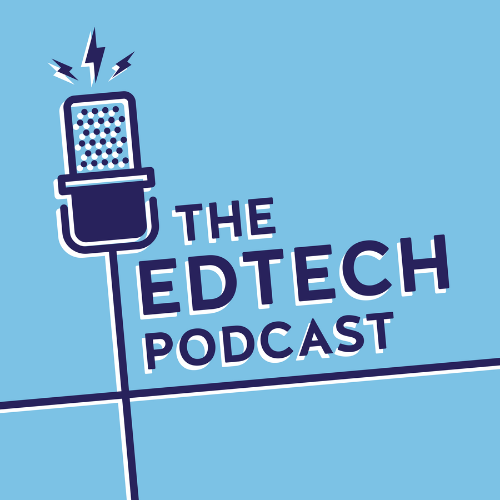
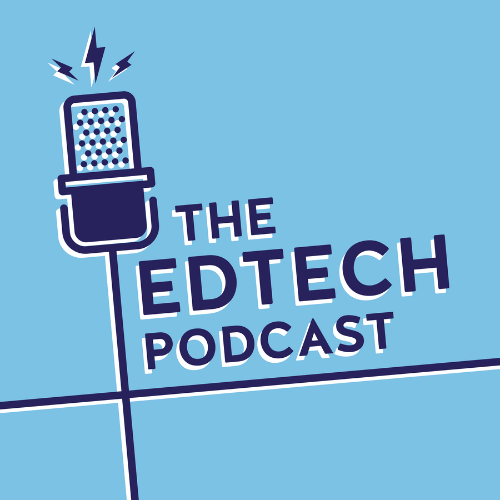
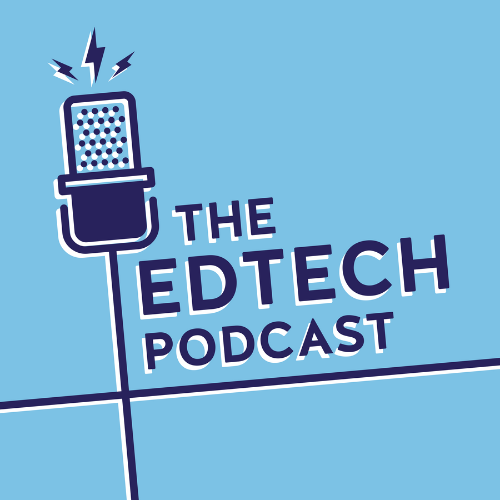
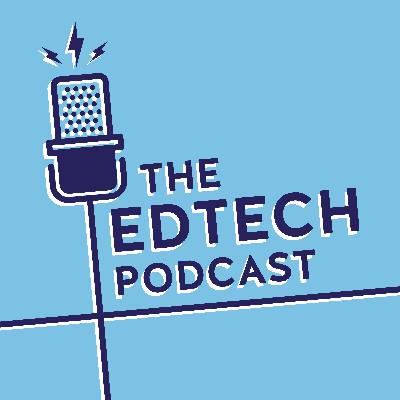
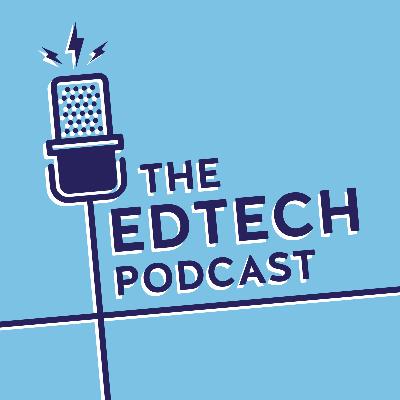
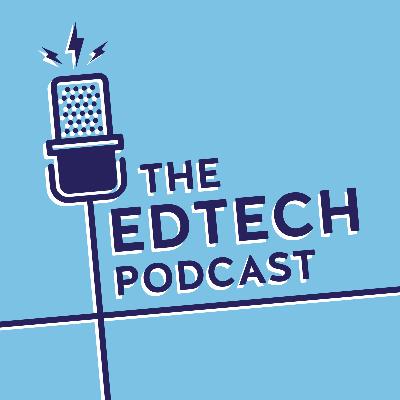





which are the two books that last speaker recommended?